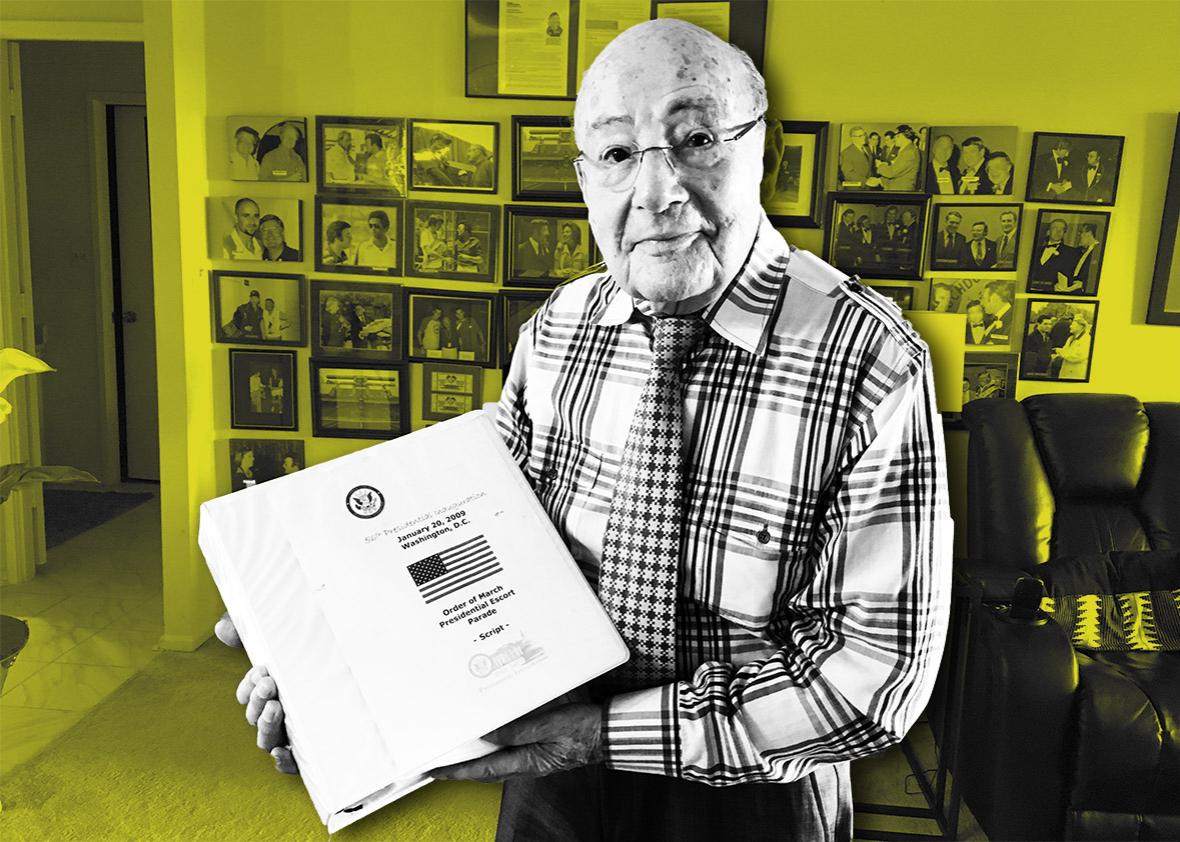Listen to this episode of Working with guest Charlie Brotman:
Subscribe in iTunes ∙ RSS feed ∙ Download ∙ Play in a New Tab
Slate Plus members: Get your ad-free podcast feed.
For almost 60 years, Charlie Brotman held a genuinely unique job, serving as the lead announcer for the presidential inaugural parade every four years in Washington. As he explains in this episode of Working, before he took on that responsibility he had been a baseball announcer for the Washington Senators baseball team. In his time at the stadium, Brotman met Dwight D. Eisenhower, who would go on to ask him to serve at his 1957 inauguration.
On that first occasion, Eisenhower’s people presented Brotman with a script, though he acknowledges, “I did have to ad-lib in several instances.” At the time, he assumed it was a one-off experience, but four years later representatives of then–President-elect John F. Kennedy called him up to “pick his brain” on how to pull together their own parade. In the decades that followed, Brotman stepped up to the podium for every subsequent president, with the exception of Gerald Ford.
All that changed, however, in the lead up to Trump’s inauguration. Even at 89, he was looking forward to introducing the new president, but after struggling to contact the incumbent’s representatives, he finally received only a note, congratulating him on his past service and informing him that he had been replaced—by a Trump supporter, as it turned out. The organizers declined to even draw insight from Brotman’s decades of experience as so many presidential inauguration committees had before.
In this episode of Working, Brotman details some of the practical lessons they might have taken from him. At the core, he says, announcing a presidential inauguration isn’t all that different from announcing a baseball game at the stadium. Both require a commitment to careful, slow diction that cuts through and over the surrounding hubbub—whether along a crowded parade route or in a chaotic arena. Above all else, he stresses the importance of explaining what’s happening—and who’s coming up next—as precisely as possible.
To ensure that he hit the right notes, he would work from thorough scripts contained in heavy binders, many of which blanketed the table we were sitting at as we spoke to him. In many cases, though, he found that the scripts contained too much information about the marchers, such that the next group would already have passed by the time he finished reading about the prior one. But even when the scripts hit the right pace, Brotman would still have to improvise during the inevitable delays that cropped up under ordinary circumstances. When they did, he often fell back on trivia, quizzing the audience about facts such as the number of restrooms in the White House.
Over the years, Brotman has also had to battle the elements, not least of all because it’s often brutally cold in Washington on the day of the inauguration. He would dress for warmth, clad in thermal underwear and multiple layers, though he sometimes had to strip off articles of clothing as the day went on. As he remembers it, Reagan’s second inauguration was especially frigid, so much so that the president’s advisers recommended canceling the event. The night before, however, Brotman received a call, instructing him to head to the indoor Capital Center instead of his traditional perch on Pennsylvania Avenue. “They told me, ‘You might as well throw away the script, because it has nothing to do with what’s happening in this building,’ ” he recalls.
As Brotman sees it, his central responsibility was always to the president himself. “I’m actually the announcer for the president, and several hundred people are listening in.” It was his comments, he explains, that helped the president know “when to stand, when to salute, when to take off his hat, when to sit. I’m a word guide for him. And it’s worked beautifully for all this time.”
For all that responsibility, Brotman remains laid back about his time as announcer. “I consider myself a very ordinary guy,” he says.
Then, in a Slate Plus extra, Brotman gives us a sample of his efforts, reading from one of his old scripts. If you’re a member, enjoy bonus segments and interview transcripts from Working, plus other great podcast exclusives. Start your two-week free trial at slate.com/workingplus.
Email: working@slate.com
Twitter: @Jacob_Brogan
